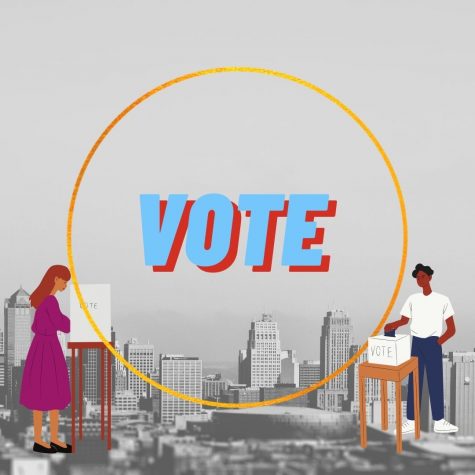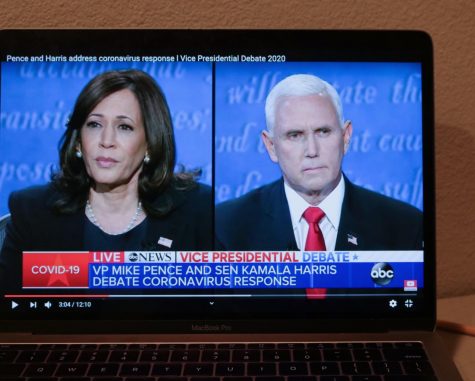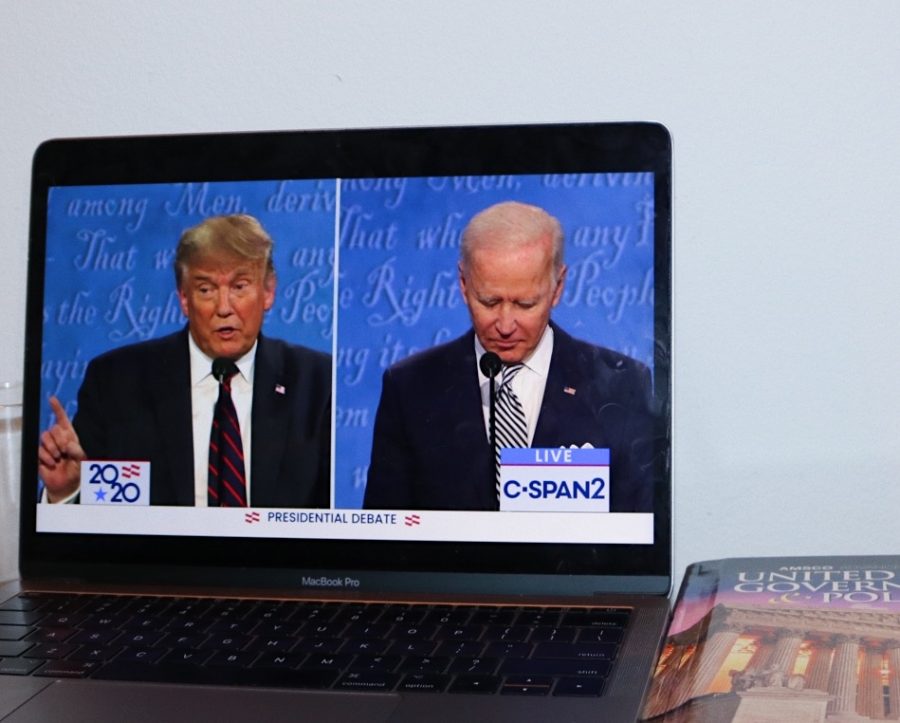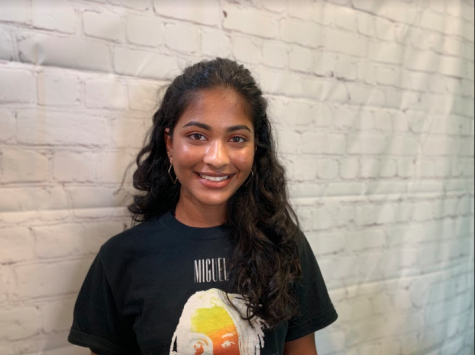How AV civics classes are covering the presidential debates
AP Government students recently studied party politics and voting regulations; they can easily relate their coursework to current events.
October 8, 2020
The internet is currently rampant with analysis of the presidential debates. And the discussion is being furthered in AVHS classrooms.
Civics teachers are encouraging their students to watch the debates, incentivizing them with live discussions and extra-credit assignments.
“In our class, we speak a lot about the importance of common good and civic engagement. I think, from that perspective, it’s really important to be involved and as informed a voter as you can be. Students who are taking civics at Amador are on the cusp of being able to vote themselves, so I think that’s what makes [the debates] really important to watch,” said AV Comp Civics teacher Stacy Sklar.
As they watch the debates, students in competition civics have the opportunity to participate in live discussions with their classmates and teacher. They can chat, rant, argue, and fact-check.
“I love the live discussions because it is interesting to listen to the views of different people, all of whom are the same age as me, and who are all equally interested in politics. I [really appreciated] that Mrs. Sklar made herself available to ask/answer questions that promote new ideas and further our discussions,” said Nikki Bondale (‘21).

These conversations are recorded on google documents and saved for future reference.
AP Government teachers Samuel Weaver and Michael Boone are also working the debates into their curriculums, debriefing and explaining the major takeaways.
“One of the most important things we try to instill in students is a sense of civic responsibility and being informed of the issues and candidates,” said Weaver.
There has been argument regarding the winners of each debate (especially the vice presidential one). However, there is no doubt that every one of the debates was, is, and will be, groundbreaking.
This election faces overwhelming amounts of pressing issues; the president has been diagnosed with a deadly infection; political polarization is at a high; and organization has been modified according to the pandemic.
“To be completely honest, the amount of actual, legitimate information contained in the debate is extremely low, it’s mostly just back and forth repetition. That said, if you don’t know a candidate particularly well (I wasn’t very informed about Mike Pence personally) it’s a good chance to get to know them a little bit. But if for nothing else, it’s a spectacle and can give students a reality check on the efficacy of American democracy and discourse at the moment,” said Derry Xu (‘21).
Civic engagement is fundamental to a functioning democracy. Elections matter. By staying abreast of politics — whether it means watching the debates or reading summaries — the public can fight to make the best decision for itself.
“I think that AV students should watch the debates, but I think that the value of that experience is not diminished by watching highlights or watching it after it happens. I know that, especially this year, debates can be tough to sit through. I definitely had to step away from the [screen] a couple of times to breathe,” said Rebecca Stumbo (‘21).
Many Americans are trying to stay updated: 73 million people watched last week’s presidential debate. As the election progresses, it is becoming increasingly critical that citizens are educated and well-informed.

“[Students should] see how candidates handle themselves and how they respond to questions– how they conduct themselves when speaking, or not speaking,” said Boone.
The debates are intended to highlight candidates’ behaviors and opinions. They provide Americans insight on who these politicians are, and what they stand for.
“I think one important thing to consider while watching the debate is…what makes a leader? What are the important characteristics of someone who’s going to lead our country? You know that really does make a difference. [Some of] the issues change over time, but the qualities of a leader may not change as much. They may be more immutable, and go more to the core of our values as a country,” said Sklar.






